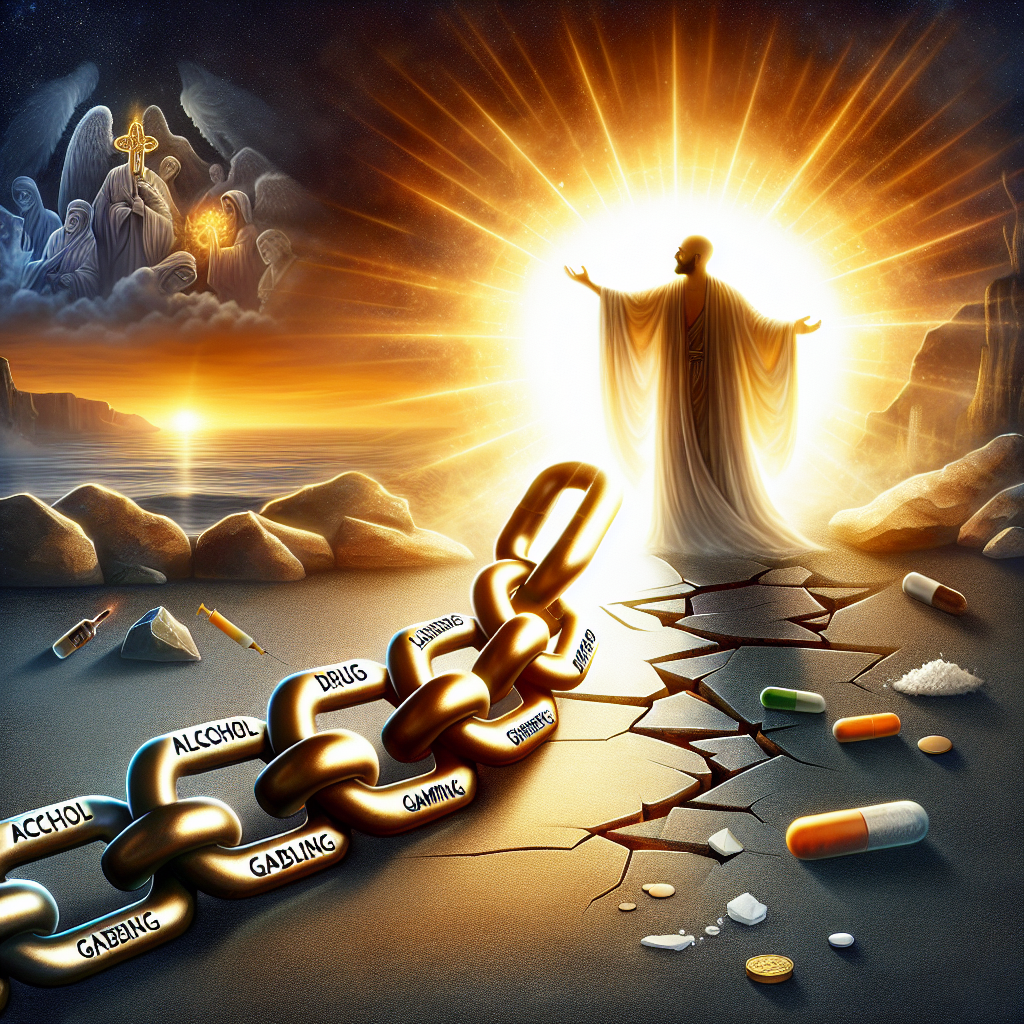-
Table of Contents

“Forgiveness: The Key to Healing and Freedom in Addiction Recovery.”
Introduction
The Power of Forgiveness in Addiction Recovery
Forgiveness is a profound and transformative element in the journey of addiction recovery. It serves as a crucial mechanism for healing, allowing individuals to release the burdens of guilt, shame, and resentment that often accompany substance abuse. By embracing forgiveness, both self-forgiveness and forgiving others, individuals can break free from the emotional chains that hinder their progress. This act of letting go fosters a sense of inner peace and self-compassion, which are essential for long-term recovery. Moreover, forgiveness can repair and strengthen relationships that may have been damaged by addiction, providing a supportive network that is vital for sustained sobriety. Ultimately, the power of forgiveness lies in its ability to restore hope, rebuild trust, and pave the way for a healthier, more fulfilling life.
The Role Of Forgiveness In Healing And Overcoming Addiction
Forgiveness is a powerful and transformative force, particularly in the context of addiction recovery. It serves as a cornerstone for healing and overcoming the myriad challenges that accompany addiction. The journey to sobriety is often fraught with emotional turmoil, guilt, and regret, making forgiveness not just a beneficial practice but a necessary one. By embracing forgiveness, individuals can release the burdens of their past, mend broken relationships, and foster a sense of inner peace that is crucial for long-term recovery.
To begin with, self-forgiveness is a critical aspect of the healing process. Addiction often leads individuals to engage in behaviors that are harmful to themselves and others, resulting in deep-seated feelings of shame and self-loathing. These negative emotions can create a vicious cycle, perpetuating the addiction as a means of escape. However, by practicing self-forgiveness, individuals can break this cycle. It allows them to acknowledge their mistakes, learn from them, and move forward without the weight of guilt dragging them down. This newfound self-compassion can significantly enhance their ability to stay committed to their recovery journey.
Moreover, forgiveness extends beyond the self to include others who may have been affected by the individual’s addiction. Relationships with family, friends, and colleagues often suffer as a result of addictive behaviors. Rebuilding these relationships requires a willingness to seek forgiveness and to forgive others. This mutual exchange of forgiveness can heal emotional wounds and restore trust, creating a supportive network that is vital for sustained recovery. When individuals feel supported and understood, they are more likely to remain resilient in the face of challenges.
In addition to mending personal relationships, forgiveness can also play a role in addressing the societal stigma associated with addiction. Many people struggling with addiction face judgment and discrimination, which can exacerbate feelings of isolation and hopelessness. By fostering a culture of forgiveness and understanding, society can help reduce this stigma, encouraging more individuals to seek help without fear of judgment. This shift in societal attitudes can lead to more inclusive and effective support systems, ultimately benefiting everyone involved.
Furthermore, the practice of forgiveness can have profound psychological and physiological benefits. Studies have shown that forgiveness can reduce stress, lower blood pressure, and improve overall mental health. These benefits are particularly important for individuals in recovery, as stress and poor mental health can be significant triggers for relapse. By incorporating forgiveness into their daily lives, individuals can enhance their emotional well-being and build resilience against potential setbacks.
It is important to note that forgiveness is not about condoning harmful behaviors or forgetting past transgressions. Rather, it is about letting go of resentment and anger, which can be corrosive to one’s well-being. Forgiveness is a conscious choice to release negative emotions and embrace a more positive and hopeful outlook. This shift in perspective can empower individuals to take control of their lives and make healthier choices moving forward.
In conclusion, the power of forgiveness in addiction recovery cannot be overstated. It is a multifaceted tool that aids in self-healing, relationship repair, and societal change. By embracing forgiveness, individuals can free themselves from the shackles of their past, build stronger connections with others, and foster a sense of inner peace that is essential for lasting recovery. As such, forgiveness should be considered an integral component of any comprehensive addiction recovery program, offering a pathway to true healing and transformation.
How Forgiveness Can Strengthen Relationships During Addiction Recovery
Forgiveness is a powerful and transformative force, particularly in the context of addiction recovery. When individuals embark on the journey to overcome addiction, they often face a myriad of challenges, including strained relationships with family, friends, and even themselves. The process of recovery is not just about abstaining from substances; it is also about healing the emotional and psychological wounds that addiction has inflicted. One of the most effective ways to mend these wounds is through the practice of forgiveness.
Forgiveness can play a crucial role in strengthening relationships during addiction recovery. When someone is battling addiction, their actions can cause significant harm to those around them. Loved ones may feel betrayed, hurt, and angry, leading to a breakdown in trust and communication. However, when both the person in recovery and their loved ones embrace forgiveness, it opens the door to reconciliation and healing. This mutual act of forgiveness allows for the rebuilding of trust, which is essential for any healthy relationship.
Moreover, forgiveness fosters empathy and understanding. When individuals in recovery seek forgiveness, they are acknowledging the pain they have caused and taking responsibility for their actions. This act of humility can be incredibly powerful, as it demonstrates a genuine desire to make amends and change for the better. On the other hand, when loved ones offer forgiveness, they are choosing to see beyond the addiction and recognize the inherent worth of the person they care about. This shift in perspective can lead to deeper emotional connections and a more supportive environment for recovery.
In addition to strengthening relationships with others, forgiveness is also vital for self-healing. Many individuals struggling with addiction carry a heavy burden of guilt and shame. These negative emotions can be detrimental to the recovery process, as they often lead to self-destructive behaviors and a sense of hopelessness. By practicing self-forgiveness, individuals can release these burdens and cultivate a more positive self-image. This, in turn, empowers them to make healthier choices and stay committed to their recovery journey.
Furthermore, forgiveness can break the cycle of resentment and anger that often accompanies addiction. Holding onto grudges and past hurts can create a toxic environment that hinders progress. When individuals and their loved ones choose to forgive, they are letting go of these negative emotions and making space for healing and growth. This positive shift in energy can create a more harmonious and supportive atmosphere, which is conducive to long-term recovery.
It is important to note that forgiveness is not about condoning harmful behavior or forgetting the past. Rather, it is about releasing the hold that past actions have on the present and choosing to move forward with compassion and understanding. Forgiveness is a process that takes time and effort, but its benefits are profound and far-reaching.
In conclusion, the power of forgiveness in addiction recovery cannot be overstated. It has the potential to mend broken relationships, foster empathy and understanding, promote self-healing, and break the cycle of negative emotions. By embracing forgiveness, individuals in recovery and their loved ones can create a more supportive and nurturing environment, paving the way for lasting healing and transformation. As they navigate the challenges of recovery, the practice of forgiveness can serve as a beacon of hope and a testament to the resilience of the human spirit.
Q&A
1. **Question:** How does forgiveness impact the emotional well-being of individuals in addiction recovery?
**Answer:** Forgiveness can significantly improve emotional well-being by reducing feelings of guilt, shame, and resentment, which are common in addiction recovery. This emotional relief can lead to lower stress levels and a more positive outlook on life, aiding in the overall recovery process.
2. **Question:** What role does self-forgiveness play in the process of addiction recovery?
**Answer:** Self-forgiveness is crucial in addiction recovery as it allows individuals to let go of self-blame and negative self-judgment. This acceptance and compassion towards oneself can foster a healthier self-image and increase the motivation to maintain sobriety and make positive life changes.
Conclusion
The power of forgiveness in addiction recovery is profound, serving as a crucial element in the healing process. Forgiveness, both of oneself and others, helps to release the burden of guilt, shame, and resentment that often accompanies addiction. This emotional release fosters a healthier mental state, which is essential for sustained recovery. By embracing forgiveness, individuals can break free from the cycle of negative emotions that fuel addictive behaviors, allowing them to rebuild relationships, restore self-worth, and create a more positive and hopeful future. Ultimately, forgiveness acts as a catalyst for personal growth and long-term sobriety, making it an indispensable component of successful addiction recovery.



